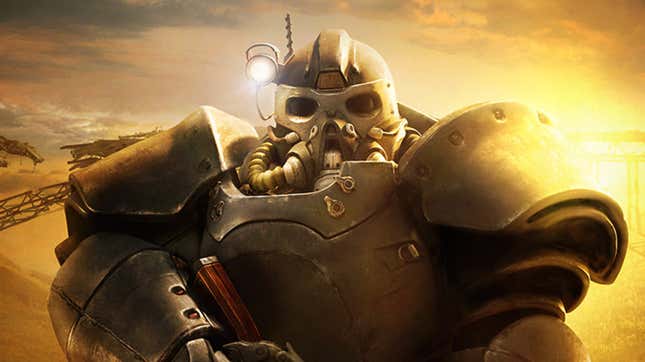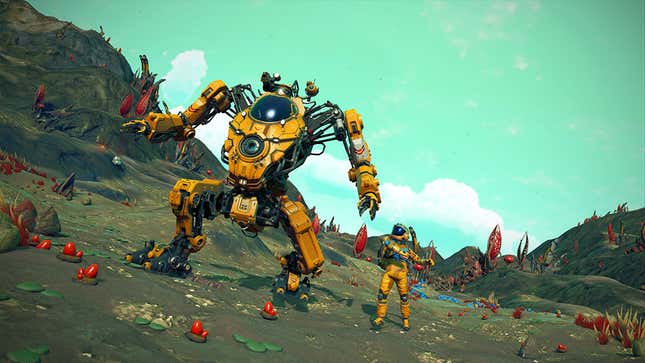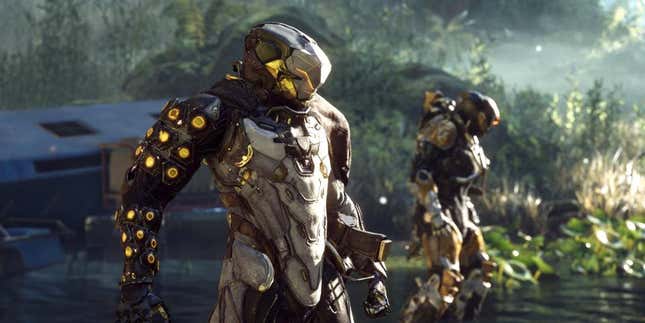
For nearly the entire history of video games, most title’s lifespans would play out the same cruel, Darwinian way: they would come out and either live or die, sometimes with spectacular consequences. No second chances.
This was true of first cartridge and then disc-based games, which would either fly off the shelf or not. But it has persisted even into the digital age, where the cost of modern development and keeping servers up and running mean games could be killed off within months of their release if they weren’t an instant hit.
More recently, though, we’ve begun to see a growing number of exceptions to this rule. Games that release to a storm of critical abuse, or a litany of technical failures (or both!), which may have sold well initially thanks to pre-orders but blew any chance of continued sales thanks to their crumminess. Instead of meeting their demise they are kept around, as though they’re too big to fail, with more money and time and work being pumped into them until they get better.

No Man’s Sky is a great example of this. Dangerously over-hyped, it arrived in 2016 in a fairly basic state that left a lot of people feeling like the game they were promised and the game they got were from different planets. Things did not go well.
But instead of being remembered as a failure frozen in time, a Spore for the modern age, the team at Hello Games were afforded the time and money to keep working on it, in an effort to actually make the thing that everyone thought they’d be getting in the first place. So they just kept releasing new content, adding new features, making the experience bigger and better by the month.
By 2019, we were writing stories like, “The unexpected success of No Man’s Sky”. In 2020, No Man’s Sky—once the subject of 14-thousand vote Reddit threads called “Where’s the No Man’s Sky we were sold on?”—was taking out the “Best Ongoing Game” prize at The Game Awards over big-money competitors like Apex Legends, Fortnite and Destiny 2.
Fallout 76 is another one. An unmitigated catastrophe at launch, the game did almost nothing right. It was a technical mess, but also had fundamental design issues, the kind that naturally stem from trying to cobble together a game that nobody asked for just to cram a square-shaped intellectual property into a lucrative, round-shaped genre hole.
It should have died. It deserved to die. But the strength of its brand—and more importantly the depths of the coffers of its publisher Bethesda—meant that was never going to happen. If Fallout 76 couldn’t be a good game at launch, then it would be a good game at some point.
Just like No Man’s Sky, Bethesda have spent years tweaking, adding and fixing things in the game, zeroing in on the kind of stuff people love, and papering over the bits they don’t. And just like No Man’s Sky, we’re now at the point where a game we once openly mocked is getting Kotaku game diaries written about it called, “They Finally Did It: Fallout 76 Is Pretty Good Now.”
For a third, slightly different example, let’s look at Anthem. The latest project from BioWare, the same people behind Mass Effect and Dragon Age, Anthem was, in theory, supposed to be an innovative blend of Destiny’s social gunplay and BioWare’s own patented story-telling.
It released as a complete mess, a pale imitation of Destiny in almost every way, and what publishers EA were hoping would become a dependable source of revenue from perhaps their single most important developer has instead become a punchline, to the point where retailers have been selling the game for $1 just to clear out the stock.
Where at least No Man’s Sky and Fallout 76 had a redemptive arc to their story, Anthem’s attempted reboot has so far come to nothing, and amidst other turmoil at BioWare inspires little hope in the team ever being able to turn it into even a decent game, let alone a success.
But that’s just the thing. It failed, like those other games, and yet it is still here, like those other games. Its publisher has simply decided that it can not fail, and so will just keep developing it and pumping money into it until that changes. This is a quintessential tragedy of modern AAA game development: if Anthem hasn’t been cancelled then it’s not a failure, and if it’s not a failure, then by some perverse metrics it’s a success.
On the one hand, the optimistic one, this is great! We have more good games to play than we would have otherwise. Publishers being too swift to kill games and shut down servers has been a real bummer in the past (RIP, Disney Infinity), and so if some games needed some extra, more public time in the oven, and they were better for it, then so be it.
After all, every game I’ve spoken about here has one thing in common: an online focus. There’s only so much work you can do in-house and with limited testing before unleashing an online game on the real world, and seeing how people actually react under everyday networking and social conditions. Sometimes a game just needs to hit the streets, get some feedback, retool and come back a better experience.

If you’re a fan of the reborn No Man’s Sky, Fallout 76 or even to a less extreme degree games like Rainbow Six Siege and Warframe, this is undeniably a good thing, as some of your favourites wouldn’t be here without the emergent trend of unkillable video games.
On the other more pessimistic hand, though, this also sucks? It’s such a privilege for a broken and poorly-designed game to be backed by a billionaire corporation and be able to survive a bad launch. There are countless other games that could have been truly great with some extra work, lost to us forever because they were independent, or published by smaller companies that aren’t called Ubisoft or Electronic Arts.
And even for the games that do have that luxury, going back to the drawing board is shit for the people making them, who have to return to the coalface and sometimes even go back to full-scale development on a game that was supposed to be done with, which can be bad for work conditions and even worse for morale.
Maybe it’s one of those, maybe it’s just both, but it doesn’t matter what we think of the trend when it’s simply here. Welcome to the age of the undying video game, where if you don’t like a major release at launch...maybe one day you will.